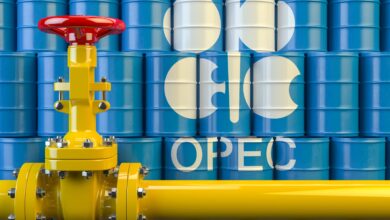Mixed Signals: NNPCL Denies Plans to Increase Petrol Price to N1,200
NNPC's Position Means that Subsidy Payments Will Rise

“The NNPLC’s position is giving mixed signals to the market and also to investors. Nigeria could promise to keep subsidising petrol no matter the cost of importing and distributing it but Nigeria cannot say that it is not subsidising petrol and also promise not to increase the price of petrol at the same time”.
The Nigerian National Petroleum Company Limited (NNPC Ltd) has denied reports that it is planning to increase the pump price of refined petroleum to N1,200. The Federal Government of Nigeria has consistently maintained that the subsidy on petrol has been removed. This should mean that the price of petrol should change when the international price of crude oil falls or rises and when the Naira gains or loses value against the dollar. Since the quantity of locally refined petroleum remains negligible, Nigeria imports the bulk of petrol consumed in the country.
Falling Naira, Rising International Oil Prices, Stagnant Nigerian Pump Price?
Nigerian oil marketers anticipate a pump price hike because international oil prices are rising; Brent crude rose 3.39% on Wednesday, January 3, 2024. The Naira has continued to lose value in both the official CBN and in the parallel markets. With about $7 billion worth of overdue foreign exchange forward contracts and no means of boosting investment or foreign exchange earnings in sight, experts project the naira to continue to depreciate in 2024.
The statement by Olufemi Soneye, the chief corporate communications officer of the company, cautioned motorists against panic-buying and also emphasised that the NNPLC has no plans to increase petrol price in the future.


Also Read: BIG READ: Fuel Subsidy Reform: How Five Countries Avoided Fiscal Suicide
The NNPLC’s position is giving mixed signals to the market and also to investors. Nigeria could promise to keep subsidising petrol no matter the cost of importing and distributing it but Nigeria cannot say that it is not subsidising petrol and also promise not to increase the price of petrol at the same time. The government or the NNPLC has no control over the two factors that determine the price of petrol– the exchange rate and the international price of crude oil.
How much the NNPCL sells petrol i.e. if it eliminates the fuel subsidy or not is critical for President Bola Ahmed Tinubu’s reform agenda and the country’s ability to attract much-needed investment. Continued subsidy payment takes the country close to a fiscal crisis; Nigeria would need to borrow more and spend more of scarce foreign exchange on importing and subsidising petrol. In a detailed report, The Guardian documents how the petrol smuggling business to the Benin Republic has thrived despite the Nigerian government’s oft-repeated claims that it has eliminated the fuel subsidy. This business will grow bigger as either a rise in the price of crude oil or further depreciation of the naira (or both) widens the gap between (subsidised) petrol price in Nigeria and the prices in neighbouring countries.
Also Read: The Nigeria Oil and Other Subsidy Traps: Is Freedom in View?
Dangote Refinery to the Rescue?
Many Nigerians expect that the price of petrol will reduce when the Dangote Refinery starts to supply fuel to the market this month. This hope is largely unfounded. For the price of Dangote Refinery to be shielded from the rise in the price of International crude oil price, the NNPCL would have to supply crude oil to the refinery at a price below international prices. This would mean a loss of income for the Nigerian treasury and hence the continuation of petrol subsidy.






